While different breeds of cats mature at different rates, The American Association of Feline Practitioners define a senior cat as being 11-14 year old. By the time your cat reaches 15 she is considered geriatric. Just like your own annual checkups, your cat’s wellness visits will change as she gets older.
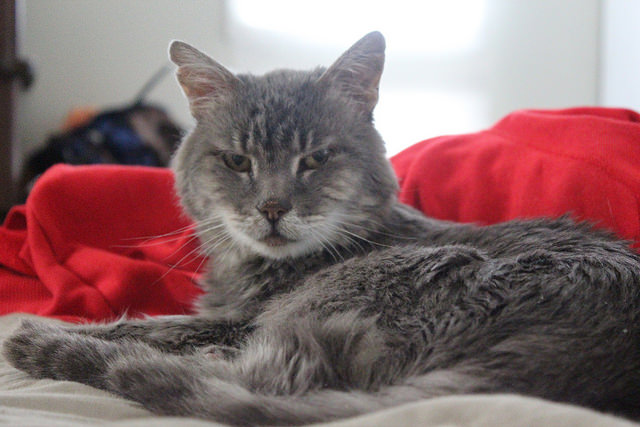
Image Source: Julie Duffy via Flickr.com
1. More Frequent Visits
Most experts recommend a wellness exam every 6 months for a senior cat. That’s because as your cat ages, her risk of developing a chronic disease gets higher while her immune system gets weaker. Scheduling wellness exams every six months will give you the benefit of diagnosing health issues in their early stages, when they are easier to treat.
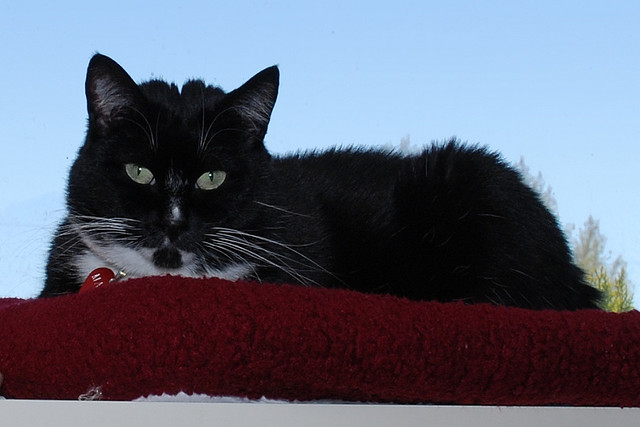
Image Source: Mark Lemming via Flickr.com
2. Your Cat Will Be Weighed
Your cat’s weight can give your veterinarian a lot of clues about your cat’s overall health, especially when compared to a baseline weight established in previous visits. Unexplained weight loss is often one of the earliest signs of disease, while obesity can be a contributor to risks such as diabetes and osteoarthritis.
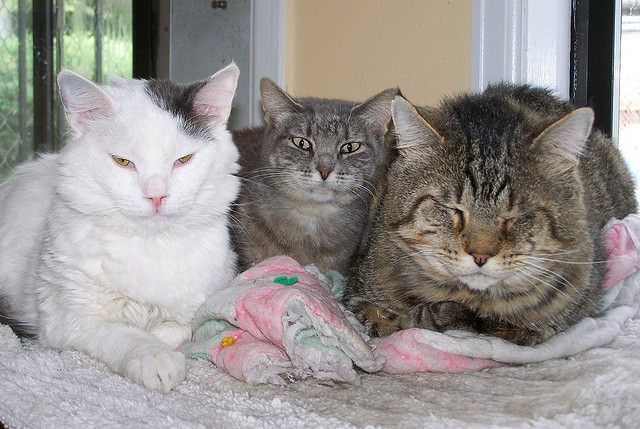
Image Source: Rocky Mountain Feline Rescue via Flickr.com
3. Physical Exam
During the physical exam your veterinarian will take a look at your cat’s overall appearance, noting any changes from her last visit or abnormalities.
- The veterinarian will check your cat’s coat and skin, looking for patches of missing fur, dull fur, dandruff, and scabs.
- Your veterinarian will feel your cat’s abdomen and neck. They’ll be checking for pain and tenderness as well as any lumps or unusual changes.
- Your veterinarian will check your cat’s joints and muscles for arthritis and weakness.
- Your cat’s eyes, ears, and mouth will be examined for signs of disease.
- Your veterinarian will listen to your cat’s heart for signs of abnormal heart rate or palpitations.
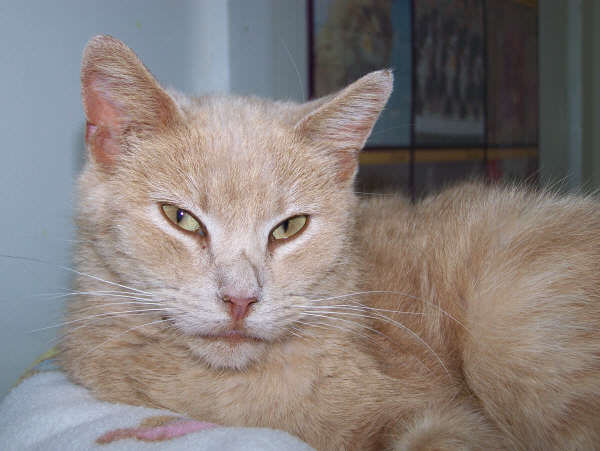
Image Source: Rocky Mountain Feline Rescue via Flickr.com
4. Dental Health Exam
Your veterinarian will take a look into your cat’s mouth, assessing her teeth and gums. It’s common for senior cats to experience dental decay and other oral issues. Regular dental exams will help your veterinarian determine the rate of deterioration and whether further treatment can increase your cat’s quality of life.
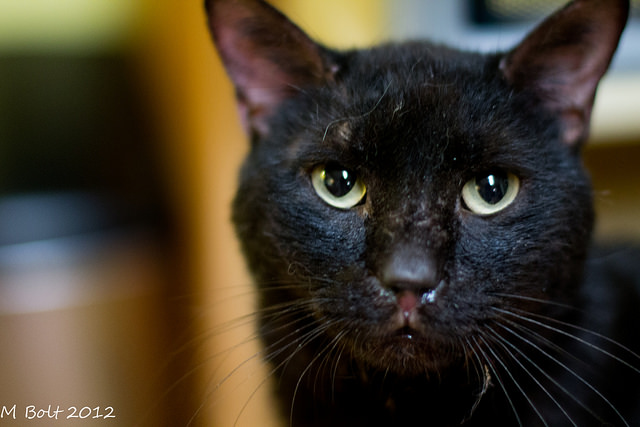
Image Source: M B via Flickr.com
5. Other Tests
There are some routine tests that are run at wellness exams for senior cats.
- A urinalysis will help assess your cat’s kidney function as well as check for signs of infection in her bladder and urinary tract.
- A blood panel will give your veterinarian a look into your cat’s overall immune system. It will also give your veterinarian a comprehensive look at your cat’s cholesterol level, electrolytes, and organ functions.
- A thyroid profile will assess your cat’s metabolism. Improper thyroid function commonly leads to other health problems.
